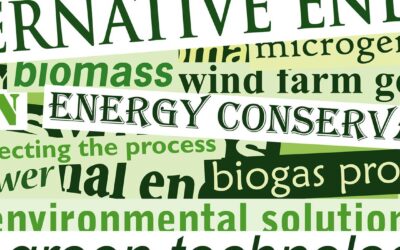The online publication Yale Environment 360 recently asked eleven environmentalists and environmental groups for their reactions to the Waxman-Markey climate legislation, now that the bill has spent some time marinating in various congressional committees. The question takes on particular relevance as environmentalists wrestle with the issue of how far to compromise on various key issues. Here’s a round-up of the round-up:
**Angela Ledford, U.S. Climate Action Network**
In a nutshell: supports the bill even if it doesn’t go far enough.
Key quote: “We cannot blow this moment. But we shouldn’t think for a second our job is done once the bill is passed.”
**Phil Radford, Greenpeace USA**
In a nutshell: bill is too weak to do any good, and will trade away the president’s ability to regulate coal plants under the Clean Air Act
Key quote: “It’s like building a 4-foot levee in New Orleans as the waters rush in at 40 feet.”
**Joseph Romm, Center for American Progress**
In a nutshell: bill is good enough, and if it doesn’t pass, we’re doomed
Key quote: “Waxman-Markey is the only game in town. Let’s work hard to improve it, but killing it would be an act of environmental suicide.”
**Denis Hayes, Bullitt Foundation**
In a nutshell: Waxman and Markey have negotiated the best deal for the environment that this Congress is capable of passing
Key quote: “Waxman-Markey’s flaws are huge but discrete, and they can be addressed in the years ahead”
**Brent Blackwelder, Friends of the Earth**
In a nutshell: the bill is fatally compromised with special interest giveaways
Key quote: “Special interests — including Big Oil, Dirty Coal, and Wall Street — continue to hold too much sway in the Energy and Commerce Committee from which this bill emerged”
**David Jenkins, Republicans for Environmental Protection**
In a nutshell: not great, but better than doing nothing
Key quote: “Every year that we fail to enact legislation to reduce carbon emissions, climate change becomes more difficult and costly to address. The responsible, and conservative, course is to act now.”
**Charles Drevna, National Petrochemical & Refiners Association**
In a nutshell: this bill will hurt profits in my industry
Key quote: “U.S. refiners already face stiff foreign competition and would be severely disadvantaged with higher compliance costs under the Waxman-Markey scheme”
**Liz Martin Perera, Union of Concerned Scientists**
In a nutshell: not as strong as we’d like, but exactly what we need
Key quote: “it took many years to pass the Clean Air Act, which was later significantly strengthened through various amendments. This is probably the single best shot we’ll ever get at putting a cap on global warming pollution, and we need to take it.”
**Michael Brune, Rainforest Action Network**
In a nutshell: emissions reduction targets are too low, offset provisions are too high
Key quote: “Scientists state that an atmospheric concentration of 350 parts per million of CO2 is the upper limit for a stable climate; this bill aims for 450”
**Paul Hawken, Environmentalist**
In a nutshell: though it doesn’t go far enough, the bill sets us in the right direction
Key quote: “legislation is not actually written in Congress; it is assembled there. One detects the fine hand of environmental and climate experts in the bill, not just big utilities”
**Michael Noble, Fresh Energy**
In a nutshell: bill must not trade away the EPA’s ability to regulate coal plants
Key quote: “If that coal surge takes place, we will have to de-carbonize electricity at a much steeper rate from 2020 to 2050, and the hole we will have to dig out of will be much deeper.”
So the tally is:
* 6 statements of “we need to go further, but the bill is a good start, and passing something now is imperative”
* 3 statements of “bill is too weak, should be scrapped in favor of something better”
* 1 statement of “bill is OK if we retain ability of EPA to regulate coal plants”
* 1 statement of “please don’t regulate my industry”
Setting aside the delicate sensibilities of the Petrochemicals & Refiners Association, the overall impression given by the comments is that Waxman-Markey provides a solid foundation from which to start regulating carbon emissions, particularly given the set of political constraints facing congress and the urgent timing of the issue.
A couple of related observations:
* The Rainforest Action Network’s objections to the bill seem based on a somewhat idiosyncratic reading of its offset provisions. They envision a scenario that no one actually thinks will come to pass.
* If you’re wondering whether the support of a group called “Republicans for Environmental Protection” is actually a reason to oppose the bill, don’t: David Jenkins offers up solid policy analysis in his assessment of the bill.
* Several groups mention the fact that the bill would strip the EPA of its ability to regulate coal plants under the Clean Air Act. I haven’t really heard much chatter about this issue, but it seems like a legitimate cause for concern. Waxman-Markey proposes to regulate coal plants directly, but does away with the more far-reaching regulatory powers of the CAA.
Via Worldchanging.
Brought to you by terrapass.com
Featured image








